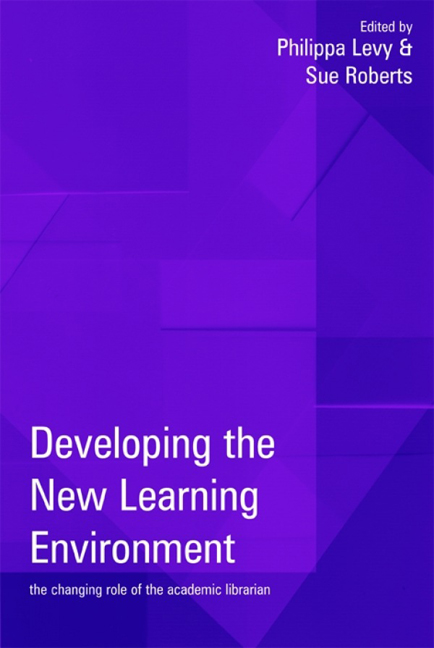11 - (E)merging professional identities and practices
from Part 3 - Reflections
Published online by Cambridge University Press: 08 June 2018
Summary
The purpose of this final chapter is twofold: to reflect on the preceding contributions, and to look to the future by considering implications for the further development of librarians’ roles and professional identity in the context of new learning environments and learner support teams.
Introduction
The collation and editing of this book has not been an easy task. Our desire to include multiple perspectives, and to recognize the tensions and complexities inherent in responses to a rapidly changing professional environment, has, we hope, resulted in a thought-provoking text. Ref lecting on the differing views represented in this text, we believe that new understandings of professional identity are emerging for the academic librarian and that there is also a move towards stronger integration – perhaps even merging – with the identities of other professional groups in relation to learner-centred learner support practice in the networked environment.
The librarian as educator
A rich, multi-faceted vision of the librarian as educator is ref lected in this collection. Among the diverse viewpoints there is nevertheless a strong consensus at the core of the book that librarians have a distinctive contribution to make to learner support and information literacy education, and that the scope of their role encompasses educational design, facilitation, development and innovation, taken forward in partnership with colleagues with complementary specialisms. It is noticeable that librarians have not generally been characterized as ‘trainers’ by contributors to this book, with the rather mechanistic connotations regarding both learning and learner support that this term evokes. Instead, librarians are seen here as facilitators of active, critically ref lective learning, whether the focus is directly on developing students’ information literacy or more broadly on designing and supporting information interactions and environments that will help catalyse students’ engagement with their academic discipline.
The implications of constructivist and relational perspectives on learning and teaching have been examined by several authors, including Levy, Williams, Littlejohn and Peacock, and the importance of developing a deeper, context-sensitive understanding of what it means to be a learner and information user in the current environment has been highlighted. Chapman, McFarlane and Macwilliam have reminded us of the diversity of the student experience in this respect, and of the need to engage more closely with the challenge to develop learning support and teaching practices that are truly inclusive.
- Type
- Chapter
- Information
- Developing the New Learning EnvironmentThe changing role of the academic librarian, pp. 220 - 230Publisher: FacetPrint publication year: 2005

